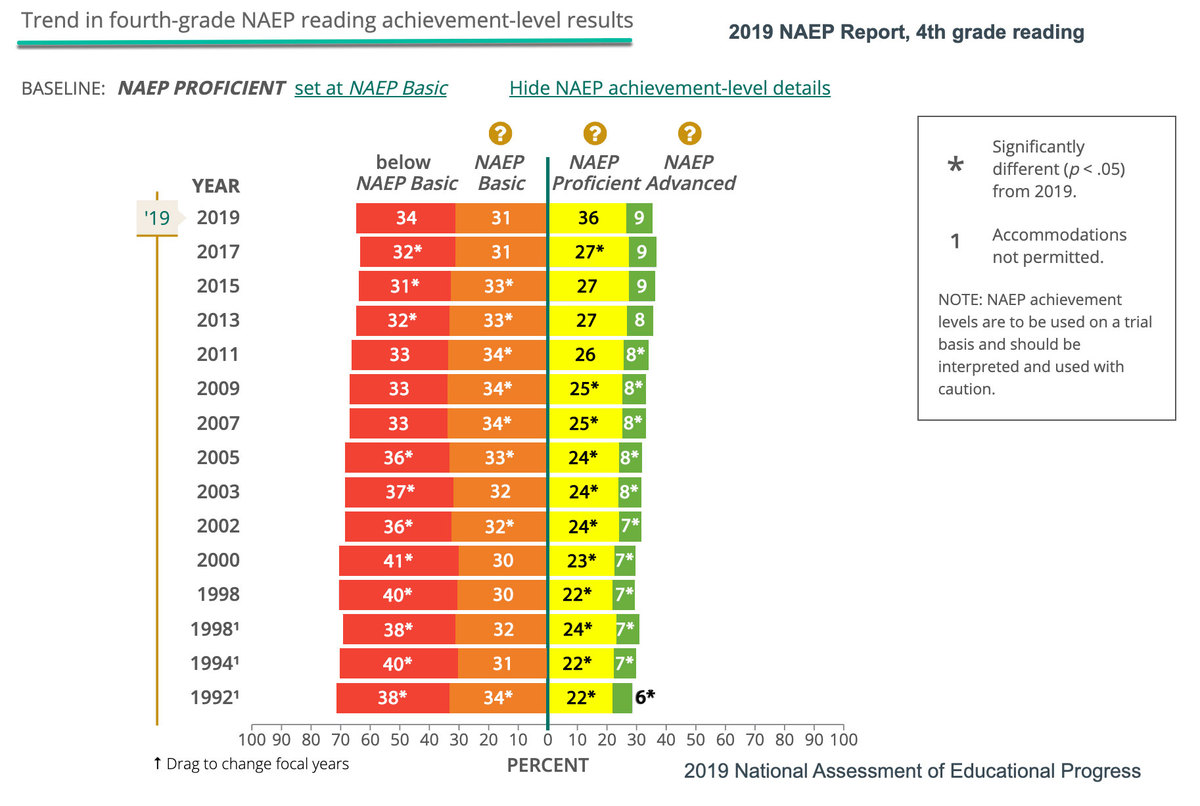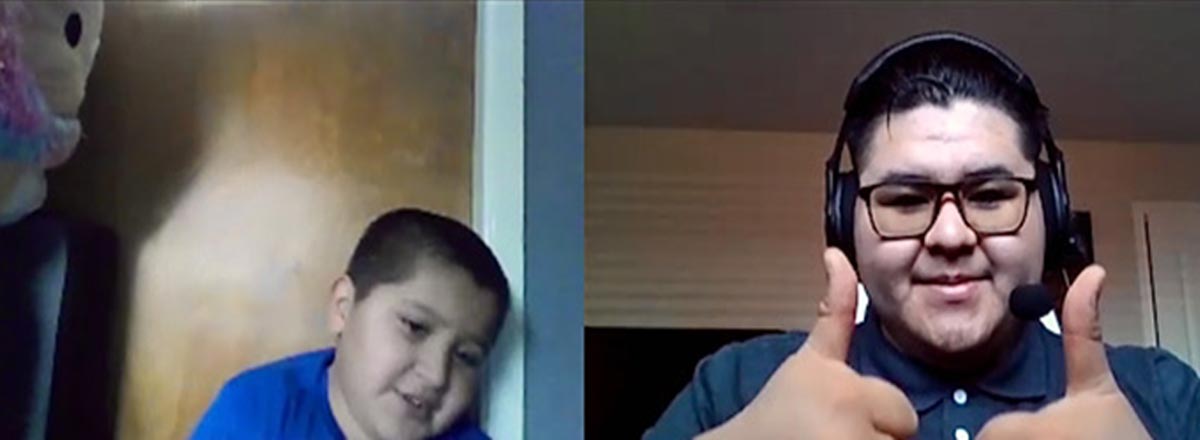Twenty eight years of tracking grade four reading skills has identified a serious foundation in our education system. The image you see on the right side is the National Assessment on Educational Progress (NAEP) reporting on fourth-grade students’ reading proficiency. For the 2019, 65% of Grade 4 students are not reading at Grade Level Proficiency! An average of 33% of this group are classified with reading skills “Below NEAP Basic”. In layman’s terms, this group cannot read at the level necessary to engage in their 4th grade class subjects.
The second low-performing group in 2019, comprising 31% of all fourth-grade students read at a level defined as NAEP Basic Proficiency, identified as the the column in orange.
We could debate the reasons, or we could spend our time and resources addressing this reading proficiency problem that is particularly rampant in low-income and under-served communities. This low reading proficiency has a severe impact on the future opportunities available to our young people.
We spent 12 years operating an after-school reading program, we have observed how students learn by applying systematic reading strategies.
The ideal teaching method is a one-to-one teacher-student relationship, but that approach is resource-intensive and outside most households’ budgets.
Within underserved communities, struggling readers will comprise 33% to 50% of the class in grades 1-4. The school resources are not sufficient to address the reading skill needs for each student.
We focus primarily on the 33% of non-readers and 31% of basic proficiency readers before they get to the fourth grade when remedial lessons take more resources, are problematic or the student may be destined for limited reading skills.
Our experience has validated individual student progress for students who will engage in a 30 minute recorded video lesson three times per week. For students who are behind by two or more years from their current grade, lessons engagement should occur five times per week until the student approaches reading proficiency for the current grade level.
Failing to teach children how to read proficiently by the fourth grade is not just a failed effort, it represents:
- The beginning of a problematic academic career
- Severely limits opportunities for higher education
- Derails opportunities in building successful careers
- Handicaps a person’s ability to reason and make informed decisions




